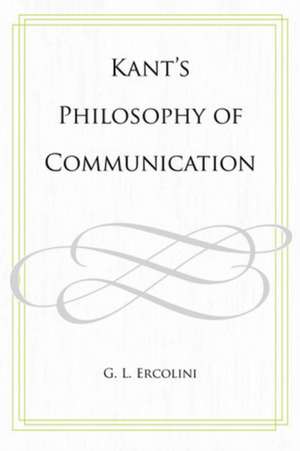Kant's Philosophy of Communication
Autor G. L. Ercolinien Limba Engleză Paperback – 15 aug 2016
Preț: 217.52 lei
Nou
Puncte Express: 326
Preț estimativ în valută:
41.62€ • 43.69$ • 34.55£
41.62€ • 43.69$ • 34.55£
Carte indisponibilă temporar
Doresc să fiu notificat când acest titlu va fi disponibil:
Se trimite...
Preluare comenzi: 021 569.72.76
Specificații
ISBN-13: 9780820704869
ISBN-10: 0820704865
Pagini: 285
Dimensiuni: 152 x 228 x 19 mm
Greutate: 0.43 kg
Editura: Duquesne University Press
Colecția Duquesne University Press (US)
ISBN-10: 0820704865
Pagini: 285
Dimensiuni: 152 x 228 x 19 mm
Greutate: 0.43 kg
Editura: Duquesne University Press
Colecția Duquesne University Press (US)
